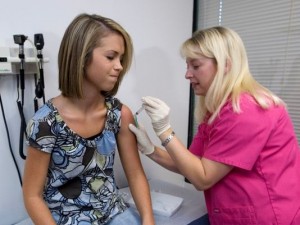
Can I really get throat cancer from oral sex? Michael Douglas says so.
-
Everyone knows (or should know) that smoking causes lung cancer. If you think about it, you’ll realize that your mouth, throat and voicebox can’t get out of the way. They are exposed to the cancer-causing chemicals in tobacco smoke as well. Sure enough, smoking causes mouth, throat and voicebox cancer. In addition, it’s important to know that drinking alcohol increases the risk of mouth and throat cancer. People who use both alcohol and tobacco face still higher risks of getting a head and neck cancer than those who use one or the other alone. So, if you use tobacco, stop!
But what about sex? Can you really get throat cancer from having sex? Well, yes. However, people don’t come down with throat cancer from the sex itself. Everyone knows (or should know) about sexually transmitted illnesses. It turns out that a very, very common virus passes easily from one person to another during sex—it’s a sexually transmitted disease. This type of virus, called human papilloma virus (HPV) has been recognized to cause cancers for a quite some time. HPV causes cervical cancer in women, and the more partners women have, the more likely they are to be exposed to this cancer-causing virus.
During the last several years, head and neck cancer specialists have proven that HPV also causes an increasingly common throat cancer. As I mentioned earlier, the virus easily passes from one person to another during sex. Just as it spreads from one person to another through intercourse, oral sex transmits the virus, too. For reasons that doctors don’t entirely understand, it’s more common for men to catch an oral HPV infection from women than it is for women to contract one from men.
Only a very small number of people who catch oral HPV actually go on to get a cancer from the infection, and that tumor comes from HPV exposures years before. There’s not a lot that most grownups can do about this now. But we can encourage safe behavior by children and make certain that our kids (both boys and girls) receive the HPV vaccine—it prevents the infections that lead to cancers. Recently, USA Today reported that the HPV vaccine has significantly reduced the cancer virus in girls. According to a new study by the Centers for Disease Control and Prevention, a vaccine against the human papillomavirus has decreased the incidence of the cancer-causing virus among teenage girls by 56 percent, despite being available since only 2006.
